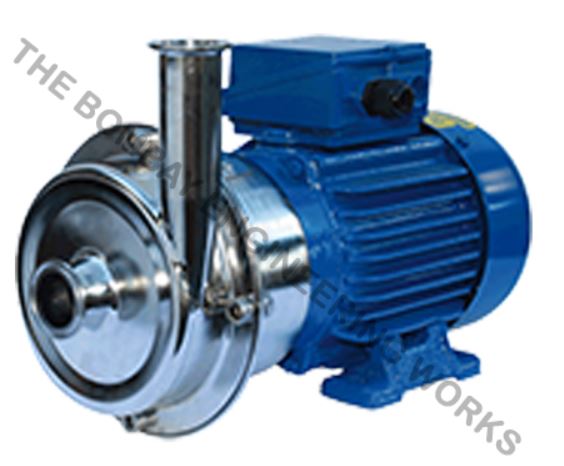We have a range of centrifugal pump. Visit our website to know more about it. We have a viable option for different machines such as cosmetics, pharmaceuticals, etc.
Centrifugal Pumps are the most popular and commonly used type of pump for the transfer of fluids. In simple words, it is a pump that uses a rotating impeller to move water or other fluids by using centrifugal force. These are the undisputed pump choice, especially for delivering liquid from one location to another in numerous industries, including agriculture, municipal (water and wastewater plants), industrial, power generation plants, petroleum, mining, chemical, pharmaceutical, and many others.
Centrifugal Pumps are useful since they can generally handle large quantities of fluids and provide very high flow rates (which may vary with the Total Dynamic Head (TDH) of the particular piping system), and adjust their flow rates over a wide range.
Centrifugal pumps are generally designed and suitable for liquids with a relatively low viscosity that pours like water or light oil. More viscous liquids such as 10 or 20 wt. Oils at 68-70 deg F will require additional horsepower for centrifugal pumps to work. For viscous liquids of more than 30 wt. oils, positive displacement pumps are preferred over centrifugal pumps to help lower energy costs.
Applications of Centrifugal Pumps:
The fact that centrifugal pumps are the most popular choice for fluid movement makes them a strong contender for many applications, and as mentioned previously, they are used across numerous industries. Supplying water, boosting pressure, pumping water for domestic requirements, assisting fire protection systems, hot water circulation, sewage drainage, and regulating boiler water are among the most common applications. Outlined below are some of the major sectors that make use of these pumps:
- Pharmaceutical, Chemical & Food Industries – Paints, hydrocarbons, petrochemical, cellulose, sugar refining, food and beverage production
- Oil & Energy – pumping crude oil, slurry, mud; used by refineries, power generation plants
- Industrial & Fire Protection Industry – Heating and ventilation, boiler feed applications, air conditioning, pressure boosting, fire protection sprinkler systems.
- Waste Management, Agriculture & Manufacturing – Wastewater processing plants, municipal industry, drainage, gas processing, irrigation, and flood protection
- Various industries (Manufacturing, Industrial, Chemicals, Pharmaceutical, Food Production, Aerospace, etc.) – for the purposes of cryogenics and refrigerants.
Advantages of Centrifugal Pumps
Since there are no drive seals, there is no risk of a leak. This makes centrifugal pumps perfect for hazardous materials. Due to no drive seals, there is no friction loss, noise, or wear. The fluids being pumped are entirely separated from the pump drive. The result is that centrifugal pumps are nearly 100% efficient in using motor power to create pumping power.
The pump chamber is separated from the motor by an air gap, preventing heat transfer. Liquid can’t seep into the motor from the pump. Friction is significantly reduced. Magnetic coupling “breaks” before high pressure can damage the pump.
If you have a restriction in the flow, a centrifugal pump will max out on pressure at its dead-head pressure, which will most likely be low enough not to cause any damage to the system. If you want to assure a good flow is present, a pressure gauge and a pump curve will give you a reasonably accurate idea of the system’s flow.

